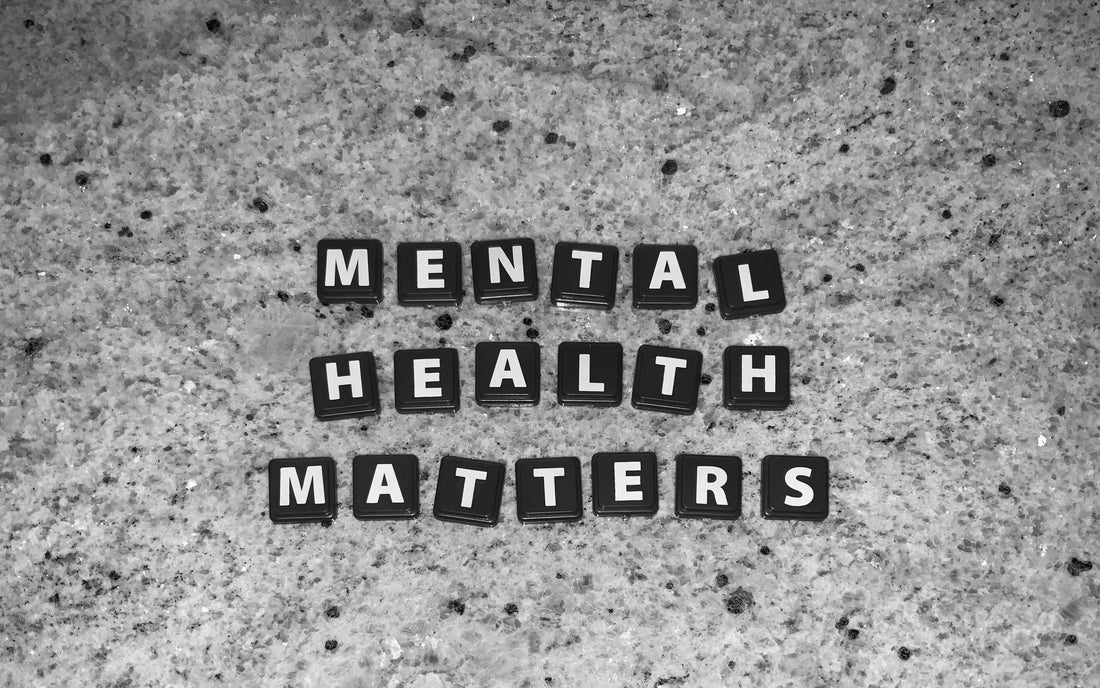
Mental Health Advancements through Pharmacogenetic Testing
BioCertica Content TeamIntro: Mental health and psychiatric disorders
In discussions on mental health, psychiatric disorders account for 14% of the global disease burden, affecting nearly 450 million people. Approximately one-third of those affected are believed to experience long-term disability and dependency.
Sadly, about half of patients with major psychiatric disorders are non-adherent to their treatments. Although other factors that affect medication non-adherence among them are medication side effects and efficacy [1]. So the question is: can pharmacogenetic testing impact treating psychiatric illness?

There are currently over 200 drugs available on the market to treat mental health illnesses [2]. This means that there are multiple options when treating patients for mental illness, which can lead to problems, such as 30-50% of patients with major depressive disorder do not respond to the first antidepressants they try [2]. This is where pharmacogenetic-guided medication management can help relieve much of this burden.
PGx and mental health
An example of where pharmacogenomics testing is severely impactful is in treating mental illness.Selective serotonin reuptake inhibitors (SSRIs) serve as crucial treatments for major depressive, anxiety disorders, and other psychiatric disorders. Roughly 30% of all medications undergo metabolism by Cytochrome P450 enzymes CYP2C19 and CYP2D6. The genes encoded for these enzymes are greatly polymorphic and contribute to diversity in drug response [3]. Upon analysis of the genetic variation in CYP2C19 and CYP2D6 genes, it was found that genotypes could be linked to varying degrees of how efficiently drugs are metabolized. Based on these findings, dosage recommendations can be made. For example, an individual with duplications of functional alleles in CYP2D6 would be considered an "ultra-rapid metabolizer", and thus a stronger dose of SSRIs may be recommended. However, despite a stronger dose, the treatment may still be ineffective in this case.
On the other hand, the dosage recommendation would be optional for an individual carrying two no-function alleles of CYP2C19 because this results in a "poor metabolizer". This may reduce the drug's metabolism, resulting in higher plasma concentrations of the SSRI, which increases the risk factor of side effects [4]. Based on findings such as these and the availability of pharmacogenetics testing, patients needing SSRIs can receive a treatment plan that would best suit them based on their specific genetic makeup.
Now that you know the theory, let's dive into the practicality of pharmacogenetic testing for psychiatric illness.
Case study:
A 25-year-old female diagnosed with major depressive disorder received treatment with Brintellix. This medication, an SSRI, aims to restore serotonin balance in the brain; however, it may cause nausea, constipation, vomiting, and dizziness.. Unfortunately, this female experienced these side effects to the point that it severely degraded her quality of life. She was so debilitated by these side effects that she was mostly bed-bound and unable to go to work or socialise. The burden of living with a mental illness was hard enough to bear, but as the side effect worsened, it became intolerable. That is when she invested in a pharmacogenetics test.
The results indicated that her genetic variation in the CYP2D6 gene is incompatible with Brintellix. As mentioned, CYP2D6 is important in metabolizing many SSRIs; therefore, finding a suitable alternative was a bit more difficult. However, some SSRIs are affected by other genes too, such as Prozac, which is also affected by the CYP2C9 gene. As this patient has a normal metaboliser status for CYP2C9, the decision was made to treat her with Prozac and adjust the dosage accordingly. Prozac proved to be very effective in treating her condition, and she stopped experiencing side effects. Without the pharmacogenetics test, her psychiatrist would not have known that Brintellix could have just adverse effects on her or which alternative SSRI to prescribe. A pharmacogenetics test restored her quality of life.
Mental health matters. For support and education on mental health, please visit The South African Depression and Anxiety Group website: https://www.sadag.org/ or contact them on 011 234 4837.
Cipla 24hr Mental Health Helpline: 0800 456 789
Disclaimer:
The term “drug” in the following article refers to a chemical substance used to treat, cure, diagnose or prevent a disease or condition. Alternatives for this term include medication, pharmaceutical or therapeutic agents. In this context, “drug” does not refer to any type of illegal stimulant or recreational drug.
References
[1] A. Semahegn, K. Torpey, A. Manu, N. Assefa, G. Tesfaye, and A. Ankomah, “Psychotropic medication non-adherence and its associated factors among patients with major psychiatric disorders: a systematic review and meta-analysis,” Syst. Rev., vol. 9, no. 1, Jan. 2020.
[2] R. H. N. van Schaik, D. J. Müller, A. Serretti, and M. Ingelman-Sundberg, “Pharmacogenetics in Psychiatry: An Update on Clinical Usability,” Front. Pharmacol., vol. 11, p. 1443, Sep. 2020.
[3] J. Petrović, V. Pešić, and V. M. Lauschke, “Frequencies of clinically important CYP2C19 and CYP2D6 alleles are graded across Europe,” Eur. J. Hum. Genet., vol. 28, no. 1, pp. 88–94, Jan. 2020.
[4] J. K. Hicks et al., “Clinical Pharmacogenetics Implementation Consortium (CPIC) guideline for CYP2D6 and CYP2C19 genotypes and dosing of selective serotonin reuptake inhibitors,” Clin. Pharmacol. Ther., vol. 98, no. 2, pp. 127–134, Aug. 2015.
Interested in trying the BioCertica Pharmacogenetics DNA kit? Click here and add Pharmacogenetics to your cart for only R3099.
If you own any other BioCertica DNA kit, you can instantly unlock your Pharmacogenetics results for only R1999* in-app.
*Terms and conditions apply.
Written by: Jamie Fernandez, B.Sc. Hons. in Genetics, Content Specialist



